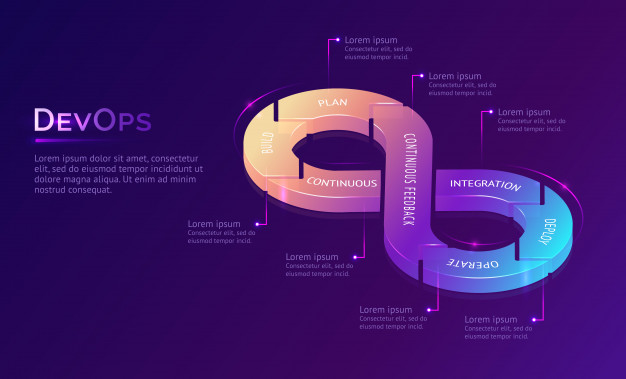In 2017, the DevOps market had sales of more than $ 2.9 billion, which is expected to exceed $ 6.6 billion by 2022. Today, DevOps has become a focus and has effectively shaped the software industry. Some experts believe DevOps will go mainstream quickly next year.
Not only are companies showing interest in DevOps, but they are also beginning to embrace these practices and technologies. DevOps adoption increased by seven percent between 2017 and 2018.
The reasons for the increase in adoption are huge. It includes things like a faster response to change, superior speed and agility, establishing the ideal channel for communication and collaboration, quick identification of vulnerabilities or bugs in code, and the ability for teams to focus their attention on others. Critical points that drive processes instead of focusing on security features.

As the new year reaches, many companies are looking forward to seeing what lies ahead for the DevOps industry. From verifying how big data analytics is working to delivering new and innovative technological advancements, the changing face of DevOps is impacting businesses in many ways.
Table of Contents
A Stronger Focus on Automation
If your company has already implemented DevOps, you have likely already seen greater efficiency and faster implementation rates. With DevOps today, there is no doubt that DevOps automation is a popular topic of discussion. The future of this technology is automation without intervention. Users and users now need to understand the six Cs of the DevOps cycle and how to apply automation between phases. This will be an essential goal in 2020.
The Development of Kubernetes
Kubernetes has proven to be one of the best container technologies. Around the world, Kubernetes is preferred by CIOs and technologists for its offering, and even more significant growth is expected by 2020.
In 2019, the adoption of Kubernetes storage solutions increased as companies of all sizes introduced containers to run various cloud-native applications. More orchestration software expected to be developed throughout 2020 to replace some of the older DevOps capabilities.
Increased Embedded Security
With the rising number of security breaches and the negative impact it has on a company’s reputation, cybersecurity is now considered essential for businesses. Throughout 2020, DevOps enhancements and updates will focus on security enhancements.
While DevSecOps has caused quite a stir in recent months, it will only increase in 2020. DevSecOps focuses on putting security first during the application development lifecycle. The idea is that this will help decrease vulnerabilities and improve a company’s reputation.
This switch to using DevSecOps will also lead to more collaboration in the software development process. This will help ensure that existing development processes remain effective, efficient, and error-free.
Data Science and Artificial Intelligence offer Advanced Automation Options
The main goal (as mentioned above) for DevOps in 2020 is zero-touch automation. The increasing use of data science and artificial intelligence has become a real game-changer. AI supports several applications. This puts modern DevOps teams under pressure to look for automation options to gain new insights into the workflows used.
Increased Enthusiasm for using Serverless Architecture
With a serverless architecture, it is possible to bring DevOps to the zenith. This does not mean that it is completely serverless. However, there is a cloud service that can cover the entire architecture. This type of exceptional architecture enables software developers to focus their attention on the application they are working on. Two of the critical aspects of serverless architecture are FaaS and BaaS. Using the architecture without a server can save you time, reduce costs, and ensure a robust and efficient workflow.
If you’re unaware of the trends and changes ahead, your DevOps may be lagging in 2020. The information here proposed to help you get a head start and know what to expect next year with this technology.

